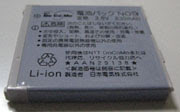By Tony Bradley, PC World
The House of Representatives has passed legislation that prevents the United States government from implementing more stringent rules classifying lithium batteries as a hazardous material. Does that mean the batteries are not hazardous? Not necessarily. The move is based on lobbying and financial interests, rather than environmental or safety concerns.
A Bloomberg report explains that the Department of Transportation (DoT), with the backing of pilot unions and congressional Democrats, proposed new restrictions on air shipments of lithium batteries based on concerns that the batteries could overheat and ignite. If implemented, the rule would result in an estimated $1.13 billion of additional costs for packaging, transportation, logistics, and training costs to ensure the proper handling of the hazardous materials.
Is there an actual concern that lithium batteries can overheat and ignite? Well, there was the 2006 recall of 1.3 million mobile phone batteries, or the 2007 recall of 46 million mobile phone batteries, or the recall of 208,000 notebook batteries by Lenovo, or the HP recall of more than 100,000 notebook batteries--all in response to reports that the batteries were dangerously hot and prone to spontaneous combustion. And, that is just scratching the surface. There is ample evidence that lithium batteries can be hazardous.
An eHow.com article describing how to properly dispose of a lithium battery explains, "Exposure to the elements in these batteries can lead to respiratory problems and, in some cases, skin rashes. In many states, it is illegal to throw away lithium ion batteries. This is because they enter the solid waste stream and contaminate soil and water. In addition, if this kind of battery is subjected to high temperatures, it may explode."
See? No worries. Nothing to be concerned about at all. The Department of Transportation and the pilot unions are probably just whining for no reason. Maybe it's a DoT and pilot conspiracy to introduce frivolous expenses for tech companies and drive up the cost of mobile devices.
This vote by the House of Representatives is indicative of the regulatory issues in the United States. We have agencies and departments mandated to safeguard the environment, protect consumer safety, ensure safe travel and transportation, and more. But, if the elected representatives side with big business and go against physical evidence and common sense because it will cost too much, the very existence of those regulatory agencies is a waste of time.
The House bill differs from its Senate counterpart, so there will be a joint session to negotiate the differences before the bill would actually be forwarded on to President Obama. We'll see if consumer and transportation safety prevail, or if $1.13 billion is a price that Congress feels comfortable risking lives over.

No comments:
Post a Comment